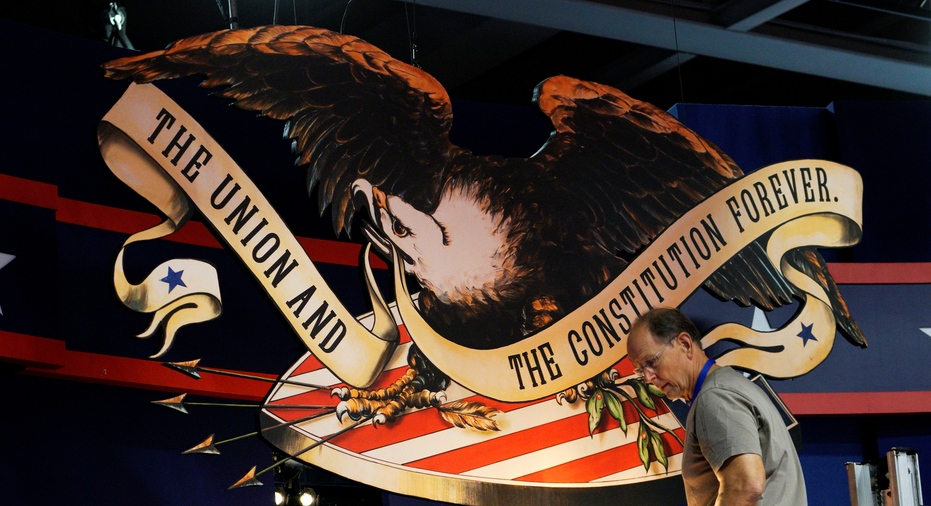Debate to Highlight Sharp Policy Splits

In their first debate, the presidential nominees veered far away from substantive differences and into personal bickering.
That likely won't be the case with their running mates, who will meet Tuesday for the only vice-presidential debateof 2016.
Indiana Gov. Mike Pence, the Republican, and Virginia Sen. Tim Kaine, the Democrat, have decadeslong political records that are diametrically opposed, reflect the mainstream of their respective parties and could bring out sharp contrasts. The 90-minute debate will be moderated by Elaine Quijano of CBS News.
Mr. Kaine, a former governor, is for the minimum-wage increase that presidential nominee Hillary Clinton has advocated, while Mr. Pence is opposed. Mr. Pence would rescind the Affordable Care Act, while Mr. Kaine wouldn't. Mr. Pence, since joining the GOP ticket, has defended presidential nominee Donald Trump's proposals to build a wall on the Mexican border and deport illegal immigrants. Mr. Kaine opposes both measures.
While vice-presidential debates can at times produce a memorable moment, they typically don't substantially shift the dynamics of a race.
"The challenge for both of them is to make absolutely no news," said Michael B. Murphy, a former Indiana Republican state legislator who has known Mr. Pence since his first run for Congress, in 1988. "As the VP candidate, the last thing you want to do is draw attention away from your running mate and his or her agenda."
The Clinton campaign has largely trained its policy attacks on Mr. Trump and ignored his running mate, while the GOP nominee features in his stump speech an attack on Mr. Kaine for proposing what Mr. Trump has called a "$4 billion tax increase."
During his term as Virginia's governor, Mr. Kaine sought to plug the state's budget holes with tax increases. To pay for transportation infrastructure, Mr. Kaine proposed shortly after taking office in 2006 raising state taxes on new vehicle purchases, auto insurance and registration fees to raise $1 billion a year.
The Richmond Times-Dispatch in July noted that a portion of the revenue would have come from boosting traffic ticket fines.
Mr. Kaine, as he was leaving office in December 2009, proposed raising all of Virginia's income-tax brackets by 1 percentage point. The Republican-controlled Virginia legislature killed that idea after he left office. But Mr. Kaine also eliminated Virginia's estate tax and signed an income-tax cut during his four-year term.
"Tim Kaine's record is more mixed than most people probably would imagine," said Richard Auxier, a researcher at the nonpartisan Tax Policy Center who has written about the vice presidential nominees' tax records. "The fact that he got rid of estate tax is probably more a reflection of his state and the time he was there rather than his views."
Mrs. Clinton opposes eliminating the federal estate tax, while Mr. Trump has said he would repeal it.
Mr. Kaine is expected to attack Mr. Pence for his stewardship of Indiana's economy, which has lagged behind the national economy since he became governor in 2013.
Mr. Pence, upon taking office, proposed cutting the state income tax by 10%; he eventually signed a measure reducing it by 5%. Mr. Pence also eliminated the state's tax on inheritances greater than $250,000 and ended the state estate tax -- a key issue for fiscal conservatives.
On social issues, the vice-presidential hopefuls have adopted starkly different positions. Mr. Pence, a former House member who for years has described himself in speeches as "a Christian, a conservative and a Republican, in that order," emerged in early 2015 as the champion of Indiana's "religious freedom" law that was widely criticized for allowing business owners to deny services to people because of their religious opposition to a customer's sexual orientation.
Mr. Pence initially defended the law, arguing it didn't offer a "license to discriminate." But after a week of intense pressure from corporate leaders in Indiana, Mr. Pence and Republicans who control the state legislature enacted a new version of the law that specified that business owners couldn't deny services. Mr. Pence has since been criticized by some leading social conservatives.
Mr. Kaine, who is Catholic, endorsed same-sex marriage in 2013, two months after his Senate swearing-in and well after President Barack Obama, Mrs. Clinton and other leading Democrats. He says he is personally against abortion but has long voted against new restrictions on the practice.
Abortion is one of the few areas where Mr. Kaine differs from Mrs. Clinton. While she has proposed lifting the Hyde Amendment, the 1976 legislation that limits federal funding for abortions, Mr. Kaine has supported it. Mr. Kaine told CNN in July that he supports Mrs. Clinton's policy to end the federal prohibition on abortion funding but maintains his own support for the policy.
Both men have altered their position on trade policy upon being named running mate. Messrs. Pence and Kaine each backed the Trans-Pacific Partnership, though each has rescinded their support in recent months to align with Mr. Trump and Mrs. Clinton, who both oppose the Pacific Rim trade pact.
Write to Reid J. Epstein at Reid.Epstein@wsj.com



















